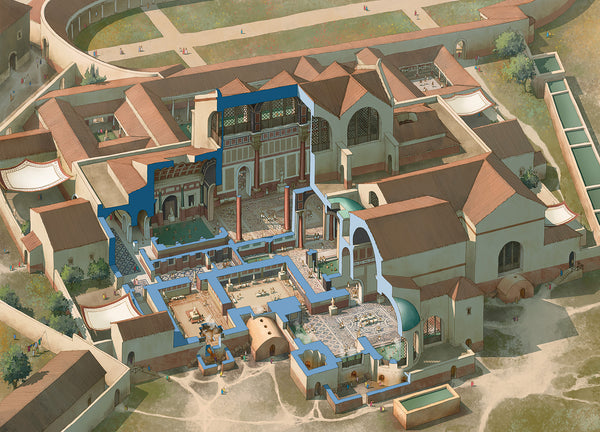Thinking about ancient Rome
By Owain Williams
As some readers will be aware, there has been a trend on social media concerning how often people think about ancient Rome and the Roman Empire. The trend appears to have started when people specifically asked their male partners and relations about the Roman Empire, but it has since developed into a more general trend. Clearly, Rome has an impressive grip on the historical imagination of many people.
It is no surprise, really. Rome is rather unprecedented when it comes to the ancient world in that, compared to Egypt, Mesopotamia, or even Greece, to name but a few regions and cultures, it has a huge historical footprint. The sheer quantity of evidence – literary and archaeological – that Rome left behind is astounding, a testament to the longevity of Roman society. It also has a lot of continuity with the modern world, such as Christianity, for example. There is also the persistent fascination with Rome in intellectual thought, particularly in Europe, since Petrarch, at least, meaning Rome is deeply embedded in our historical consciousness.
When I thought about how much I think about ancient Rome, however, I realized I hardly think about it...
When I was younger, I thought about ancient Rome all the time. I devoured any form of media I could that touched on Rome, books, films, and games – I even referenced Stanley Kubrick’s film Spartacus on my university personal statement! Yet, for some inexplicable reason, despite my prior fascination with Rome, when I went to university, I very quickly discovered myself becoming a Hellenist.

Kirk Douglas as the titular character in Spartacus.
I really mean inexplicable. There isn’t one particular moment I can point to that caused my shift in interest. Somehow, it was a gradual change, but also rather sudden. Perhaps it is comparable to the frog in a pot of boiling water? It is not as if I hadn’t been exposed to ancient Greece during my childhood. My dad and I are both fans of Christian Cameron’s historical fiction, the majority of which is set in ancient Greece. It is not as if my undergraduate studies were solely focused on Greece, either. I studied Archaic Rome, Roman funerary art, and the reigns of Constantine and Justinian. When it came to deciding my dissertation topic, though, I knew what I wanted to study, and it was Hellenic, not Roman (it was the influence of Sparta’s socio-economic system on the ethnogenesis of the Messenian ethnic identity, for anyone interested).
Since completing my bachelor's degree, my main area of interest has remained in the ancient Greek world. The focus has shifted, of course, several times, but always stayed firmly in the Hellenist camp, such as Greek exploration in the Archaic period, the slave trade, and the experience of sex workers in Classical Athens (quite different topics).


Now, though, I am persistently looking to explore areas of ancient history I have not contemplated in any great capacity before. Recently, I have read about ancient Africa, the Phoenicians, and the Scythians. This also means that, once again, I am reading about ancient Rome! I have two books on ancient Rome rising my to-be read list: Henrik Mouritsen’s Politics in the Roman Republic (Cambridge, 2017) and the collection of essays The Alternative Augustan Age, edited by Kit Morrell, Josiah Osgood, and Kathryn Welch (Oxford, 2019). I am very much looking forward to these reads!
What about you? How often do you think about ancient Rome?
I am Spartacus!


1 comment
Roman yes but Eastern Roman, the Byzantines especially the 6th. Century, Belisarius and Justinian. :)